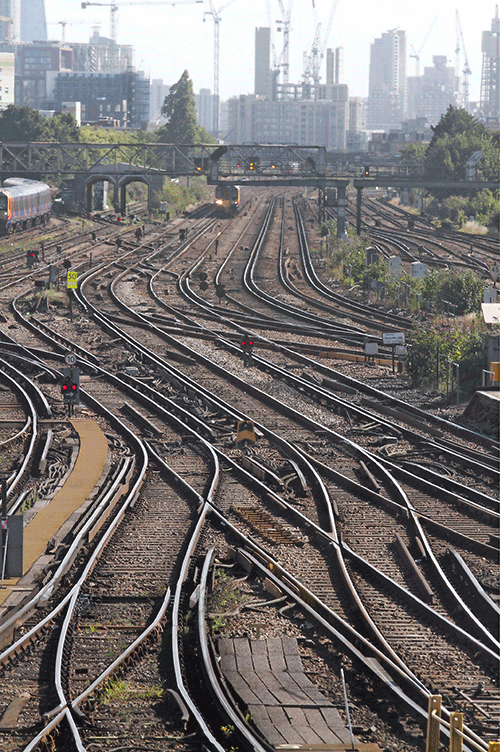 Read the peer reviews for this article
Read the peer reviews for this article
Is it going too far to read this as a battle for the soul of the railway?
On the outside, people might see that as poetic licence. But for those lost in the fog of war, it feels like that.
If the unions win, and a second member of staff is guaranteed on every train that has one today, their power over the rail industry will be significantly enhanced. But if the unions fail to halt what Govia Thameslink Railway calls the modernisation of working practices, the rest of the industry will follow GTR’s lead.
The railway is one of the last industries in which the workers can regularly bring management to heel by withdrawing their labour. So what is happening on services from Victoria and London Bridge matters to the wider trade union movement, too.
The repeated failure of talks at the independent conciliation service, ACAS, shows the complete breakdown of trust between the employer and its employees. And the customers no longer trust any of them to play nicely together. In any other industry, the customers would take their business elsewhere and the firm would go bust. Here, they have no choice.
The unions have ruthlessly exploited this weakness to their advantage. Govia Thameslink Railway employs 6,500 staff. On strike days, the 300 conductors who voted for industrial action wrecked the journeys of 100,000 passengers. They upset not just those who travelled on cancelled trains, but also those whose services still ran, but ran intermittently and wildly overcrowded.
The public perception is one of a battle about who pushes the button that opens and closes the train doors. But there are several separate actions by three unions across a range of related disputes.
Twice GTR has been to the High Court to obtain injunctions to prevent industrial action by ASLEF drivers on Southern and Gatwick Express. Now the drivers have held a fresh ballot to try again.
More than 1,000 platform staff belonging to the RMT have voted to strike over the proposed closure of some GTR ticket offices. Staff who work in them are to emerge from behind the glass screens and instead be known as Station Hosts. TSSA members have held a matching ballot. The company says this is being done because most tickets are no longer sold at ticket offices.
Meanwhile, the dispute by RMT conductors has raged unabated for nine months. Co-ordinated action by the three unions in four disputes can stop GTR in its tracks.
Intemperate language
For months, the RMT and GTR seemed incapable of sitting around a table to hold civilised discussions about modernising working practices. Instead, they traded increasingly intemperate insults through the media, seemingly oblivious to the unravelling lives of commuters. Passengers have lost jobs as a result of this dispute. Somehow the protagonists have kept theirs, while accusing each other of lies, sabotage, political manipulation and worse.
Each side has a line in the sand. Neither will step across. For months there was no movement, but then August brought progress. The RMT said it would at least discuss whether the driver might operate the train doors instead of a guard. But under no circumstances would it sanction a train having fewer crew than today - every train that currently carries a conductor must continue to do so, without exception. No conductor… no train.
The union was emboldened by a deal in Scotland. Faced with a near-identical situation, ScotRail promised to keep a guard on every new train in return for talks about who should control the doors. The company thus averted further financially ruinous strikes.
RMT General Secretary Mick Cash said: “We had a golden opportunity to make serious progress on the core issue of a second person on the train who would have protected the safety of passengers, delivered customer service and ensured access to service for those with disabilities or needing assistance. It’s a bitter blow that a firm set of union proposals were rejected out of hand.”
GTR Passenger Services Director Angie Doll said: “The RMT won’t agree to what most fair-minded people would believe is an incredibly good offer. We are guaranteeing jobs, pay, and a second person on as many trains as we do today, and also offered to work with the RMT to agree modern working practices to reduce cancellations and passenger disruption.”











